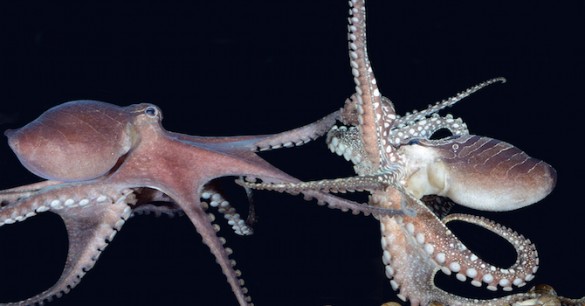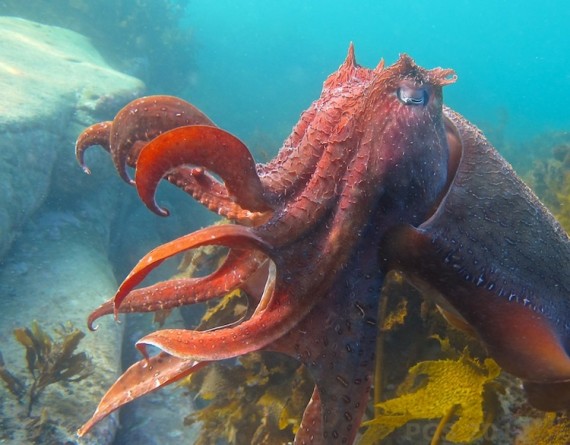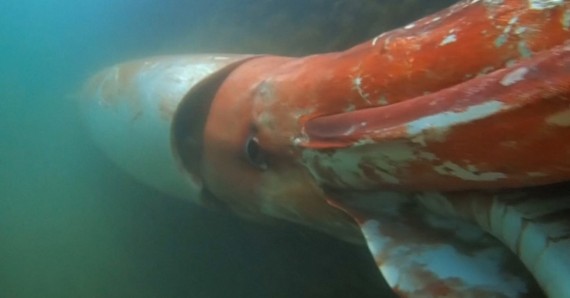
Octopuses are Taking Over the Oceans and It May Not Be Good
Source: mysteriousuniverse.org
An octopus in an aquarium is an interesting attraction. An octopus in a movie is probably a bad omen, especially if it’s bigger than the submarine running from it. A lot of octopuses reproducing at an unusually fast rate in oceans where many other marine creatures aren’t doing too well may be good for cephalopod fans but bad for the rest of humanity. Are we about to be occupied by octopus overlords?
Cephalopods – octopus, squid and cuttlefish – are often referred to as the “weeds of the sea” because they grow fast, die quickly and are able to adapt to most any environment. However, some didn’t seem to be doing too well recently, like the giant Australian cuttlefish. In a recent study to determine why, marine biologists at the University of Adelaide also checked the populations of other cephalopods. They were pleased to find that the cuttlefish were doing OK again but shocked to discover that cephalopods around the world were thriving, sometimes at alarming rates.

If your first response to this was “climate change,” you’re partly right. Higher ocean temperatures allow the cephalopods to grow even faster, helping them to adapt and evolve more quickly in rapidly changing environments. But the biggest reason for their growth is humans – specifically, fish-hungry humans. Over-fishing has reduced the number of cephalopod predators, especially the ones that eat the young octopuses and squids. While over-fishing also reduced the amount of food for octopuses, squids and cuttlefish, they acted like the weeds they are and moved to other areas with more fish.

So, is this sudden and dramatic increase in the populations of the world’s octopuses, squids and other cephalopods good or bad?
It is a good example of how the ecological changes in the world’s oceans are being driven by humans through the long-term effects of fisheries and probably global climate change but to date the latter is less well established.
That somewhat evasive answer is from Paul Rodhouse, a biological oceanographer at the British Antarctic Survey. An increase in these voracious predators is bad for the fish they eat, good for the fish (and humans) that eat them. However, the change in population is definitely a sign of global changes and deserves to be studied. That pleases marine biologist Zoe Doubleday.
Cephalopods are a bit of a research underdog, compared with other marine animals. So I hope we can use this as a springboard to do some more work.
Who cares if we’re about to become slaves to octopus overlords as long as it means job security?
